Soviet cinema has often delved into the depths of the human mind, exploring themes of madness, insanity, and psychological turmoil. This curated selection of 10 Soviet films provides a fascinating insight into how filmmakers of the era approached these complex subjects. From psychological dramas to surrealist masterpieces, these films offer not only a glimpse into the Soviet interpretation of mental health but also serve as a testament to the artistic freedom and creativity within the constraints of the time. Each film in this list has been chosen for its unique portrayal of madness, providing viewers with a rich tapestry of narratives that challenge perceptions and evoke profound emotional responses.
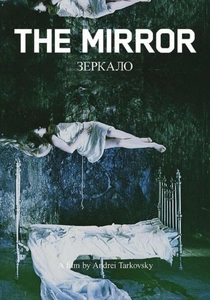
The Mirror (1975)
Description: Another Tarkovsky film, 'The Mirror,' blurs the line between reality and memory, creating a dreamlike narrative that can be interpreted as a descent into madness or a reflection of the human condition.
Fact: The film features Tarkovsky's own mother, Maria Vishnyakova, in a key role. It was initially met with mixed reactions but has since been recognized as a cinematic masterpiece.
 Watch Now
Watch Now

The Ascent (1977)
Description: This harrowing war drama by Larisa Shepitko explores the psychological effects of war on two Soviet partisans, one of whom descends into madness. The film's bleak atmosphere and intense character study make it a compelling addition to this collection.
Fact: The film won the Golden Bear at the Berlin International Film Festival in
 Watch Now
Watch Now
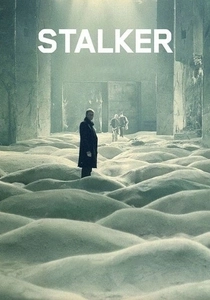
Stalker (1979)
Description: Andrei Tarkovsky's masterpiece, 'Stalker,' delves into the psyche of its characters as they journey through a mysterious Zone, where their deepest desires are said to come true. The film's exploration of existential dread and the madness of human desire is profound.
Fact: The film was shot in Estonia, and the Zone was created using a combination of real locations and studio sets. Tarkovsky's original cut was over 4 hours long.
 Watch Now
Watch Now
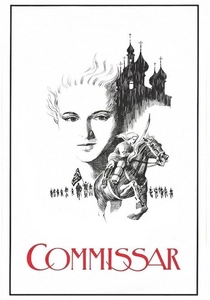
The Commissar (1967)
Description: This film by Alexander Askoldov portrays the psychological breakdown of a female commissar during the Russian Civil War, highlighting the madness of war and its impact on individuals.
Fact: The film was banned for 20 years in the Soviet Union due to its critical portrayal of the Red Army.
 Watch Now
Watch Now

The Cranes Are Flying (1957)
Description: While primarily a war drama, the film explores the psychological impact of war on its characters, with one character's descent into madness being particularly poignant.
Fact: It won the Palme d'Or at the Cannes Film Festival in 1958, making it one of the first Soviet films to achieve such international acclaim.
 30 Days Free
30 Days Free
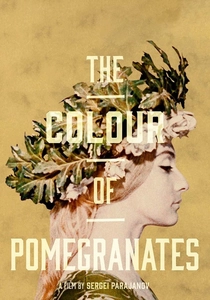
The Color of Pomegranates (1969)
Description: Directed by Sergei Parajanov, this film is a visual poem about the life of the Armenian poet Sayat-Nova, where the line between reality and surrealism blurs, hinting at a form of artistic madness.
Fact: Parajanov was imprisoned for his work, which was seen as subversive by Soviet authorities. The film was banned in the USSR for many years.
 30 Days Free
30 Days Free
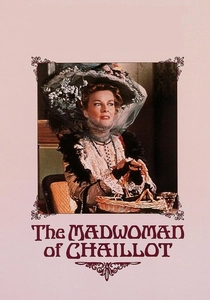
The Madwoman (1969)
Description: A lesser-known film by Vladimir Motyl, it focuses on a woman's descent into madness, offering a poignant look at the societal treatment of mental illness in Soviet times.
Fact: The film was based on a play by Alexander Ostrovsky, known for his realistic portrayal of Russian life.
 30 Days Free
30 Days Free

The House I Live In (1957)
Description: This film by Lev Kulidzhanov explores the life of a man whose sanity is questioned by those around him, offering a nuanced look at societal perceptions of madness.
Fact: The film was adapted from a play by Leonid Zorin and was one of the first Soviet films to openly discuss mental health issues.
 30 Days Free
30 Days Free

The Firebird (1967)
Description: Directed by Yuri Ilyenko, this film uses surreal imagery to depict the madness of war and the psychological effects on its characters, making it a fitting addition to this list.
Fact: The film was part of the Ukrainian poetic cinema movement, known for its experimental style.
 30 Days Free
30 Days Free

The Return of Vasili Bortnikov (1953)
Description: This film by Vsevolod Pudovkin deals with a man returning from war, whose experiences have left him mentally scarred, exploring themes of post-war trauma and madness.
Fact: Pudovkin was one of the pioneers of Soviet montage theory, influencing many filmmakers worldwide.
 30 Days Free
30 Days Free









